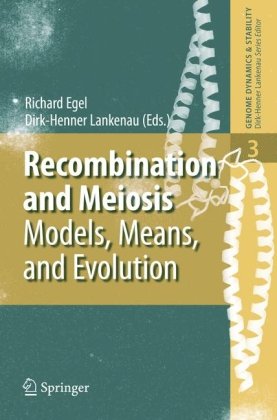

Most ebook files are in PDF format, so you can easily read them using various software such as Foxit Reader or directly on the Google Chrome browser.
Some ebook files are released by publishers in other formats such as .awz, .mobi, .epub, .fb2, etc. You may need to install specific software to read these formats on mobile/PC, such as Calibre.
Please read the tutorial at this link: https://ebookbell.com/faq
We offer FREE conversion to the popular formats you request; however, this may take some time. Therefore, right after payment, please email us, and we will try to provide the service as quickly as possible.
For some exceptional file formats or broken links (if any), please refrain from opening any disputes. Instead, email us first, and we will try to assist within a maximum of 6 hours.
EbookBell Team

4.7
36 reviewsOnce per life cycle, mitotic nuclear divisions are replaced by meiosis I and II – reducing chromosome number from the diploid level to a haploid genome and recombining chromosome arms by crossing-over. In animals, all this happens during formation of eggs and sperm – in yeasts before spore formation. The mechanisms of reciprocal exchange at crossover/chiasma sites are central to mainstream meiosis. To initiate the meiotic exchange of DNA, surgical cuts are made as a form of calculated damage that subsequently is repaired by homologous recombination. These key events are accompanied by ancillary provisions at the level of chromatin organization, sister chromatid cohesion and differential centromere connectivity. Great progress has been made in recent years in our understanding of these mechanisms. Questions still open primarily concern the placement of and mutual coordination between neighboring crossover events. Of overlapping significance, this book features two comprehensive treatises of enzymes involved in meiotic recombination, as well as the historical conceptualization of meiotic phenomena from genetical experiments. More specifically, these mechanisms are addressed in yeasts as unicellular model eukaryotes. Furthermore, evolutionary subjects related to meiosis are treated.